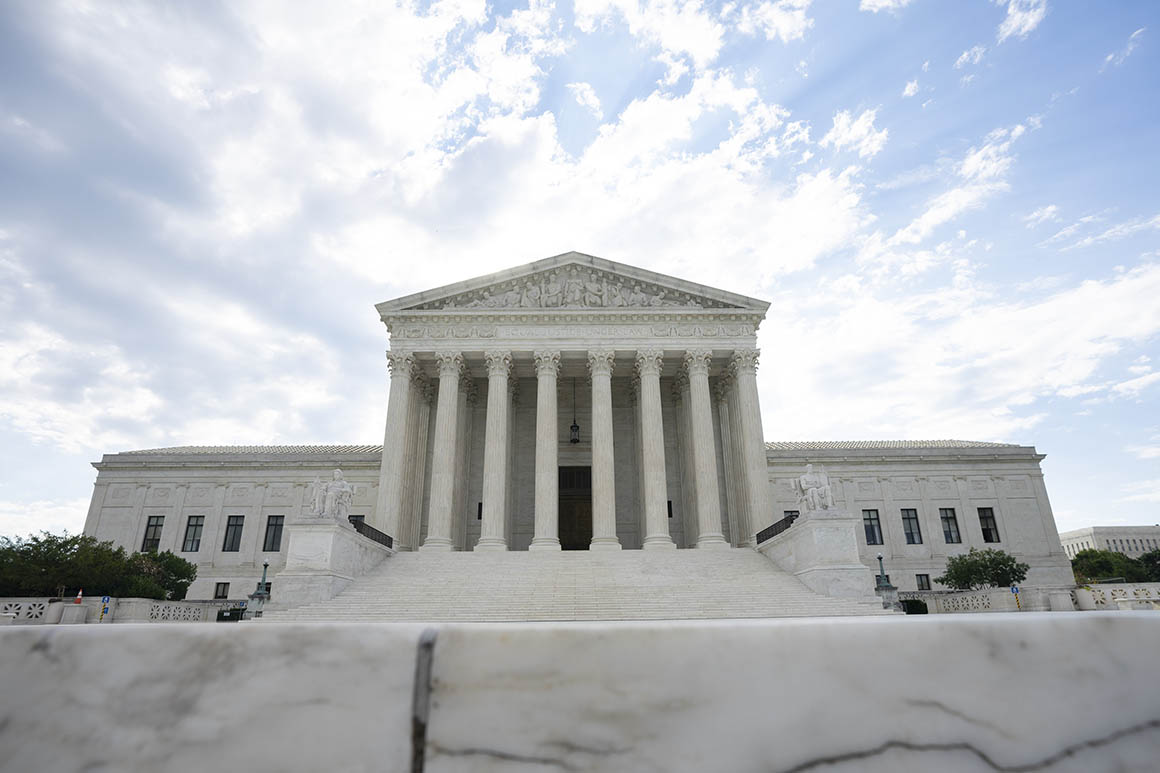
TALLAHASSEE — In a blow to voting rights that could have consequences for the presidential election, the U.S. Supreme Court let stand for now a Florida law that restricts the ability of felons to cast ballots at the polls.
The result is that hundreds of thousands of people with past felony convictions in the battleground state likely will be ineligible to vote in the August state primaries and, possibly, the November presidential election in which Donald Trump and Joe Biden are on the ballot.
The high court on Thursday did not explain its decision. Justices Sonia Sotomayor, Elena Kagan, and Ruth Bader Ginsburg, all appointed by Democratic presidents, dissented. In a stinging rebuke, Justice Sotomayor said that “this court’s inaction continues a trend of condoning disenfranchisement.”
The ruling is another victory for Republican Gov. Ron DeSantis, who opposed lifting Florida’s lifetime ban on felon voting. After voters in 2018 approved a ballot measure that restored voting rights to most former felons, the GOP-led state Legislature passed a law that requires people with felony convictions to pay outstanding court debts and fees before they can register to vote. The law was passed after voting-rights groups had begun to register former felons to vote.
“This is a deeply disappointing decision,” said Paul Smith, vice president at Campaign Legal Center, one of the groups representing former felons that challenged Florida’s law. “Florida’s voters spoke loud and clear when nearly two-thirds of them supported rights restoration at the ballot box in 2018."
A study by University of Florida political professor Daniel Smith found that nearly 775,000 people with felony convictions have some sort of outstanding legal financial obligations.
GOP legislators who pushed to limit the amendment’s reach said they were clarifying its language and and noted that supporters initially agreed with their interpretation. The law was challenged by ex-felons and voting rights groups.
But U.S. District Judge Robert Hinkle in late May ripped the Florida law, calling it an illegal pay-to-vote scheme. Requiring people with felony convictions to pay fees — which are separate from restitution paid to victims — violated the U.S. Constitution’s ban on poll taxes, he wrote. Florida, he said, had no authority to bar former felons from registering to vote simply because they couldn’t afford to pay fines and restitution.
DeSantis appealed the Hinkle ruling to the 11th Circuit Court of Appeals, which put the ruling on hold this month while it considered the appeal, prompting voting rights groups to ask the U.S. Supreme Court to step in.
The case now will return to the appeals court, which is scheduled to hold a hearing Aug. 18, the same day as Florida’s primary.
DeSantis spokesperson Helen Aguirre Ferré declined to comment on the ruling, citing the ongoing litigation.
Desmond Meade, executive director of the Florida Rights Restoration Coalition, which pushed the felon voting amendment onto the 2018 ballot, said he was “disappointed with the Supreme Court’s decision but not deterred.”
In their briefs to the U.S. Supreme Court, lawyers for the state said Hinkle’s ruling had upended the election. They criticized the process the judge ordered put in place to determine if felons were eligible to vote. Hinkle got the idea for the process from the director of the state Division of Elections.
In her dissent on Thursday, Sotomayor wrote that the Supreme Court’s order “prevents thousands of otherwise eligible voters from participating in Florida’s primary election simply because they are poor. And it allows the Court of Appeals for the Eleventh Circuit to disrupt Florida’s election process just days before the July 20 voter-registration deadline for the August primary, even though a preliminary injunction had been in place for nearly a year and a federal district court had found the State’s pay-to-vote scheme unconstitutional after an 8-day trial.”
Rick Hasen, an election law professor at the University of California Irvine, on his blog called the ruling one of the most “consequential” recent decisions on election law.
“This ruling is a big deal and shows a conservative Supreme Court majority consistently siding against voting rights,” he wrote on Twitter.
A key remaining question is whether Florida will begin to enforce the law. Maria Matthews, the director of the state’s Division of Elections, testified in court in May that state officials had identified as many as 85,000 former felons currently on voting rolls who may have outstanding legal obligations.
But despite the law being on the books for a year now, state officials have still not taken any action to remove these voters.
Source: politico.com
See more here: news365.stream






